The Natural (1984)
+ Feature film, 2h 18m🎖️
+ Based on literature (novel) The Natural (1952)❗by Bernard Malamud ⭐
+ 2️⃣/2 works in The Natural multiverse ⭐
A+^
Grade: A+^ (20.0) / HOF: 120
EQ 👍A++ | 📖A+ 👥A+ 📽️A+ 🎼A+
DW 😎9.1 | 🌚10 🌝9
POPCAP 💯n/a 🍿n/a 🧢n/a
L-R 💻⬇️1️⃣ 👀⬆️⏫ 🛐⬇️1️⃣
“Goodbye, Mr. Spalding!”
–the go-to generic, but iconic, home run call
My father passed away in 2019 at the age of 80. Born in 1938 to an itinerant farm worker and his wife, he was the ninth of twelve children—thirteen if you count the one who died near birth. Raised in poverty, my father later provided a relatively comfortable middle-class upbringing for thirteen children of his own, of which I am the oldest.
As a member of the aptly named Silent Generation, my father didn’t speak much of his childhood, but he was a sports fan, especially baseball. I remember attending my first major league baseball game at age seven in 1969 with my father and maternal grandfather. Looking back, I realize that Dad bonded with his father-in-law over their mutual love of the game.
I didn’t have a lot of quality time with my father in my childhood. With so many younger siblings, I was mostly left alone to fend for myself. But baseball was a connection that formed my strongest childhood bond with my father. (We also both loved movies, but that came in second.)
I remember playing catch in the front yard. Not often, but the memories are more precious because of the rarity.
Best of all were the summer nights in the living room, listening together to the voices of Dick Enberg and Don Drysdale narrating California Angel games over the radio.
“Touch ʼem all!”
–Dick Enberg
The 1984 film The Natural, based on the 1952 Bernard Malamud novel of the same name, is the story of a gifted baseball player, whose life takes a wrong turn and doesn’t work out the way he expected it to unfold.
In my review of the book, while noting the love of baseball revealed in its pages, I also lament its depressing, pessimistic view of humanity.
By contrast, the writers who adapted the novel, Roger Towne and Phil Dusenberry, and director Barry Levinson, give us a feel-good film for the ages. It’s arguably the best baseball movie ever made.
Sports writer Bill Simmons has argued, "Any 'Best Sports Movies' list that doesn't feature either Hoosiers or The Natural as the No. 1 pick shouldn't even count."
–Wikipedia
So how did the film creators redeem an essentially identical story and change it from a tale of despair to one of hope and celebration?
Well, I could talk about how they added Whimsy with more humor and less adult content. There’s a focus on young boys and their love of baseball, again bringing more Whimsy.
“Open the window Aunt Minnie, here it comes!”
–Rosey Roswell
I could talk about the amazing cinematography and the numerous scenes involving not only deep shadows, but also bright sunlight by day and floodlights by night. The book only seemed to deliver darkness.
I could talk about the soaring Randy Newman score that brings Whimsy with magical music at all the major moments.
I could talk about the great performance of Robert Redford as Roy Hobbs, the title character, who transforms the antihero of the novel into the hero of the film.
“Forget it!”
–Vin Scully
But all of those factors merely enhance or cascade from the key difference between the book and the film.
They gave Roy Hobbs a father.
Who loved him.
“It could be, it might be... It is... A home run!”
–Harry Caray
In both stories, Hobbs is a man motivated primarily by a burning desire for greatness. Like today’s Shohei Ohtani, Hobbs is both a great pitcher and a great hitter. And like the traitorous Ohtani, Hobbs betrays the loyalties of people who care about him, but I digress.
In the book, Hobbs almost cynically uses baseball as a means to an end because that’s where his great skills happen to fall.
In the film, Redford captures the same ambition of Hobbs, but also shows the true love of baseball passed down to him from his father, with a twinkle in his eyes and joy in his heart at just the right times.
“Good night Irene!”
–Bob Elson
A young woman named Iris is an important character in both the book and the film. In the movie Hobbs meets Iris Gaines years earlier than he meets Iris Lemon in the book—because unlike in the book, his father gave him a home and thus he has a hometown, and there was a hometown girl.
“Holy Cow!”
–Phil Rizzuto
While Hobbs makes most of the same bad decisions throughout the book and film, ultimately, it is fatherhood and the generational bonds of baseball between a father and a son that redeem his final choice. By giving Hobbs a loving father, the filmmakers gave us a Most Valuable Picture for the ages.
“They usually show movies on a flight like that.”
–Ken Coleman
In 1984 at the age of 23, I had lived away from home for a couple of years. I had already viewed The Natural in a theater once, and then invited Dad to see it with me on Father’s Day.
Afterwards, he said he liked it and he appeared to be feeling some emotion, though it was never easy to tell with him. I was disappointed that I didn’t feel any bonding, like I remembered from my childhood.
Looking back with wiser eyes, I have a feeling he was remembering a childhood further in the past and a father of his own.
“That ball is history!”
–Eric Nadel
Onwards!
P.S. Ladies, it isn’t a requirement to love sports in general, or baseball in particular, in order to love The Natural. If you love heroic men and boys in general or a few good ones in particular, this film can touch your heart too!
+ last viewed (4) 2025-04-20, HDX7, 1.85v, 2M
+ first viewed 1984, ThX, 1.85, 2
+ ⏳🏆⚾😥
+ ✅0️⃣ Mostly OK for teens and adults. | PGc
+ 😡+0 😵💫+0 🤬+0 🤭+0 🫣-0^
+ 👀⬆️⏫ ➖(😍)
+ ✝️ +2 ➕😇🩸🩸💜💜
+ ✡️ +0 ➕(🌗)💎 ➖(🤬🫢)
+ 🗽 +0 ➕(🇺🇸)
Last updated 2025-04-22
Please do not include spoilers in the comments.
Spoilers are permitted in the Chat for this work.

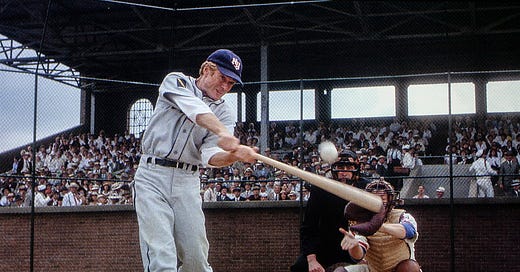


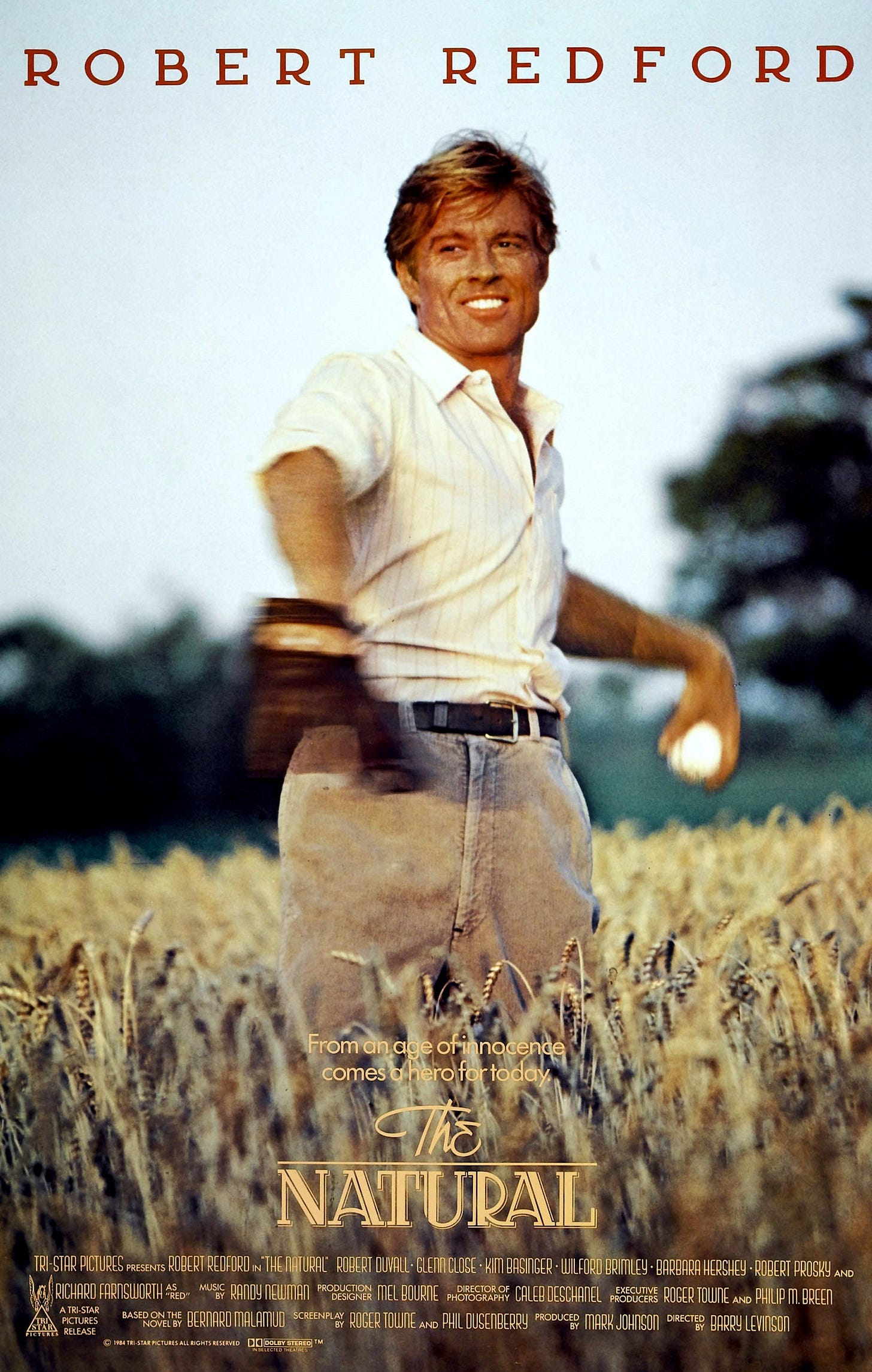
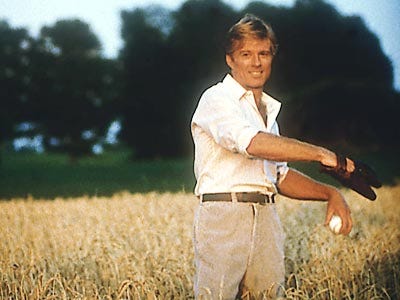
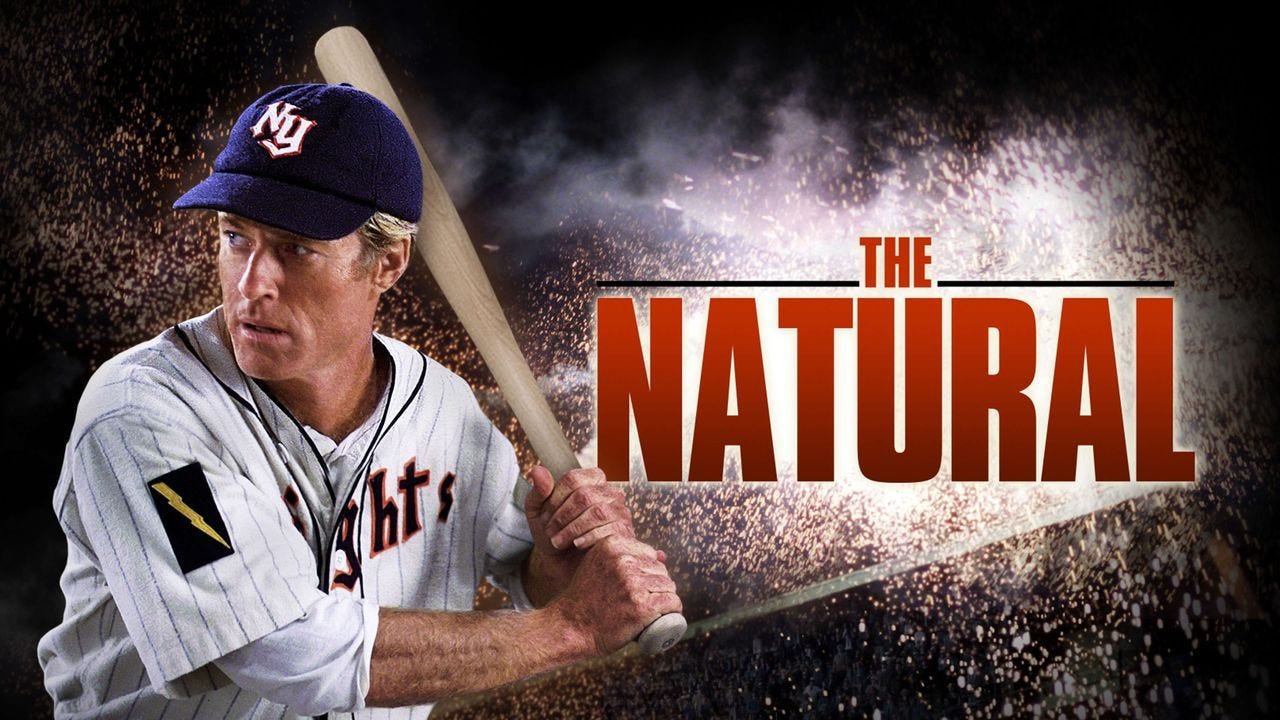
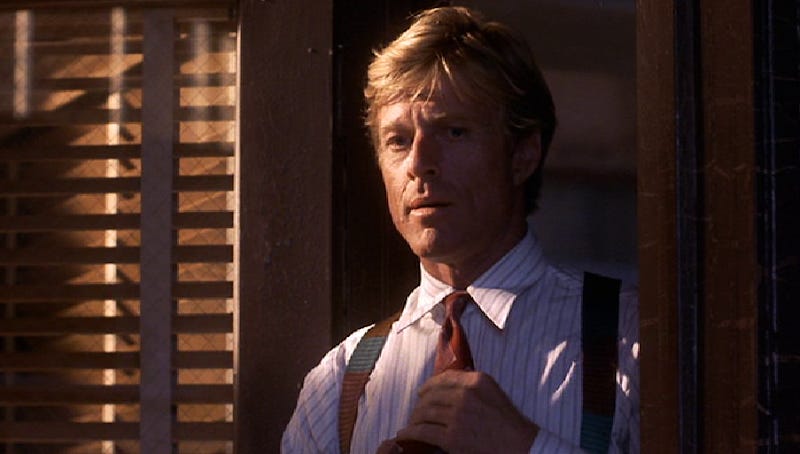
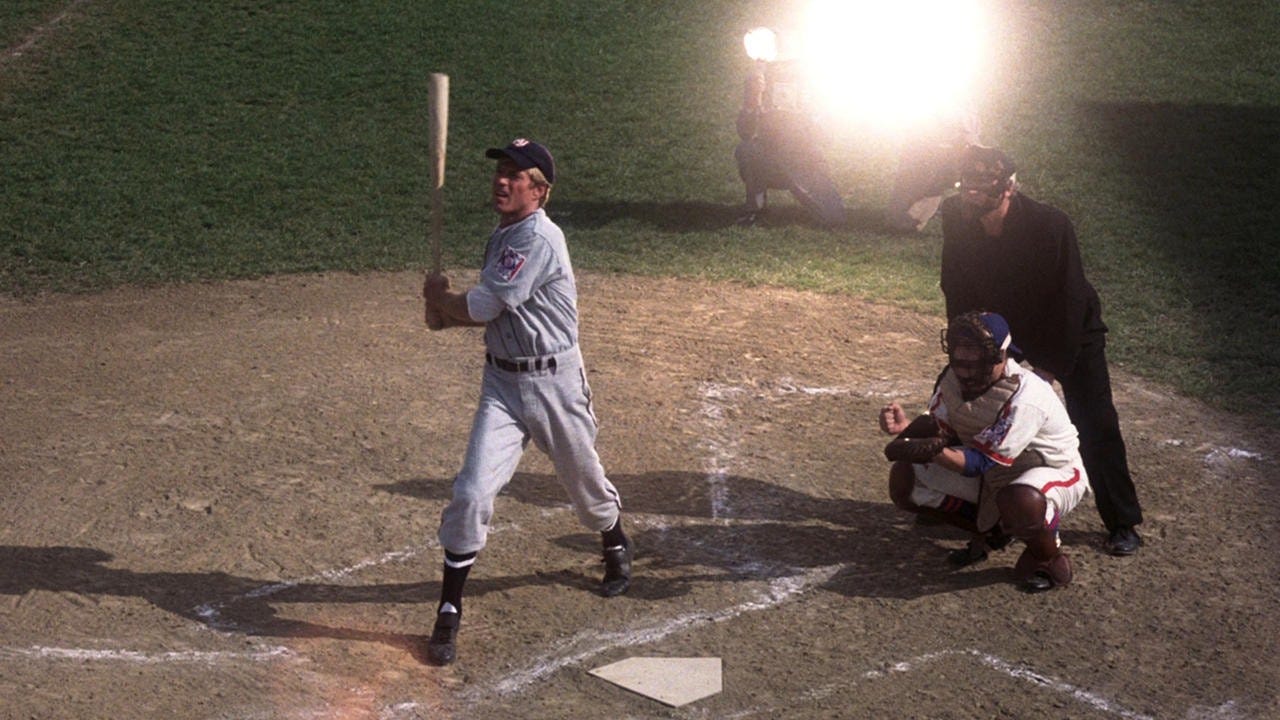
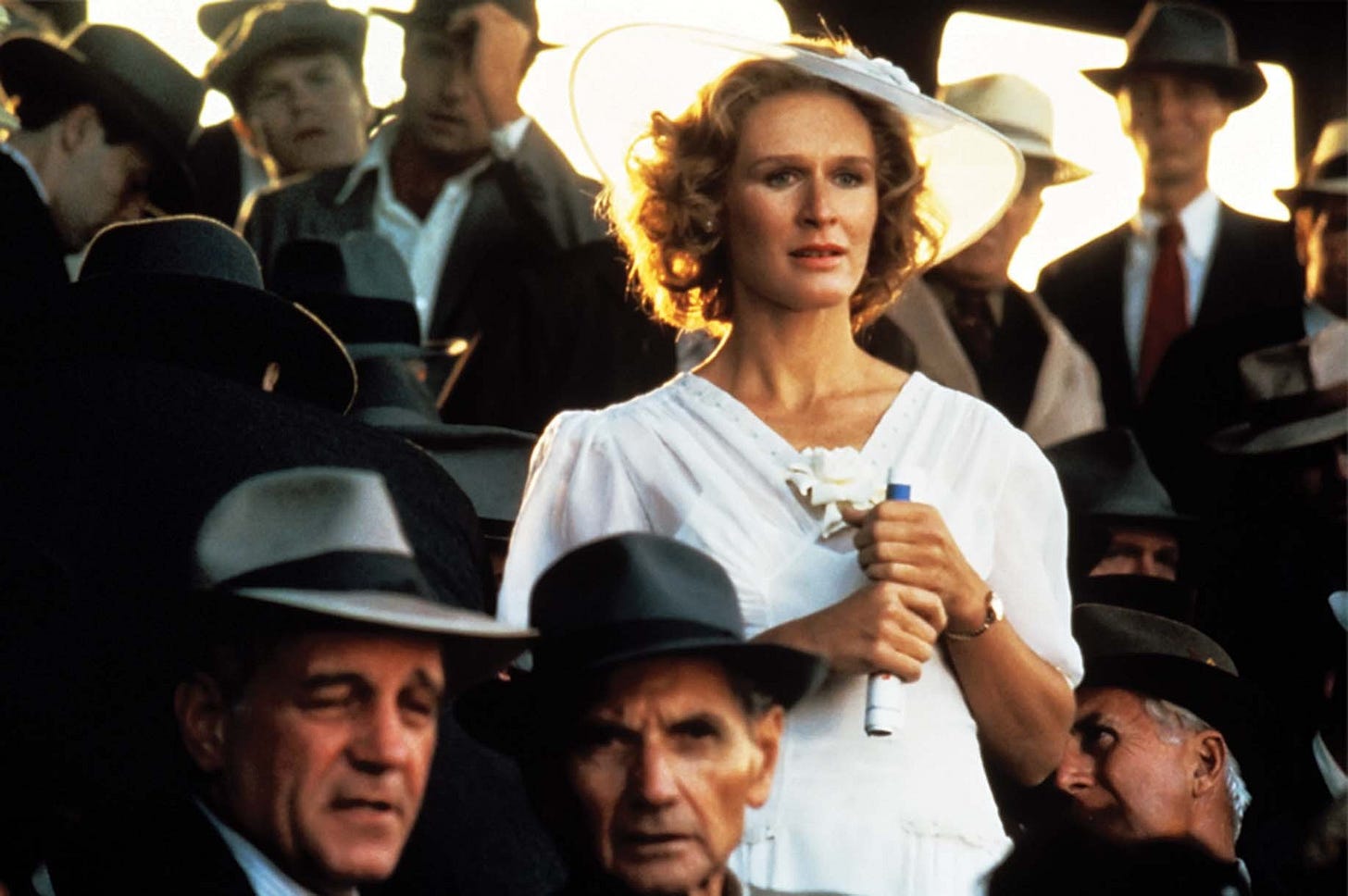
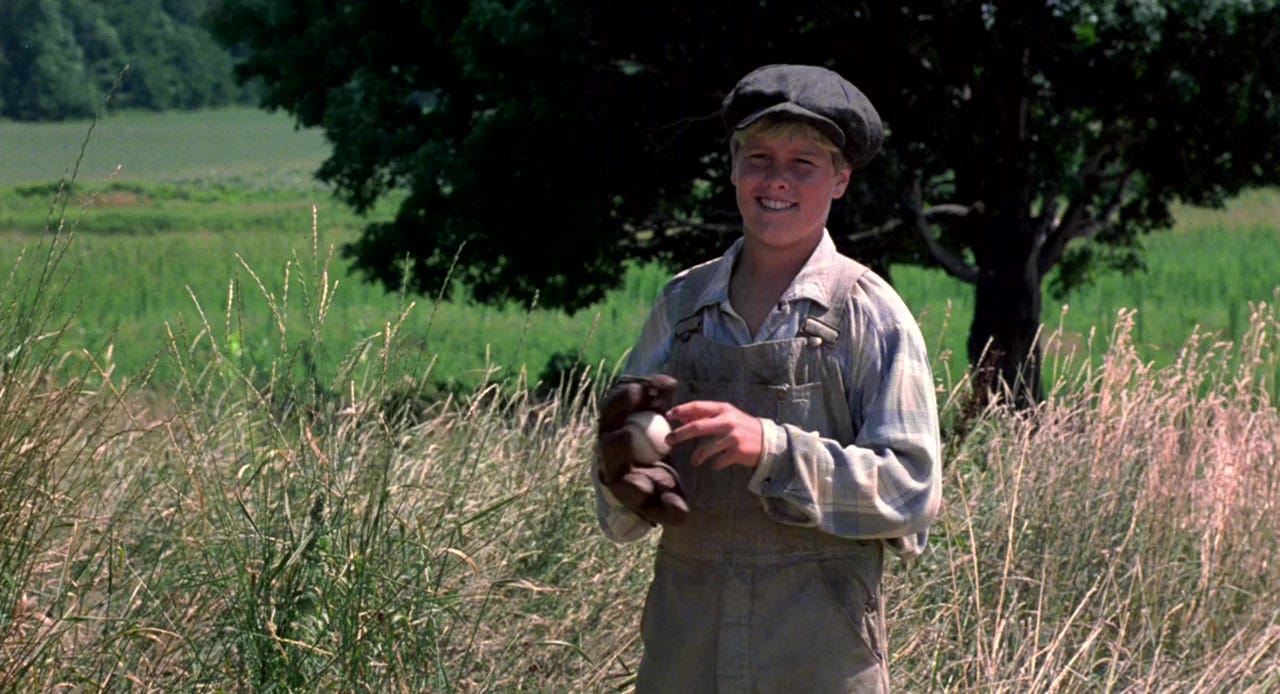

Congratulations on the best review you've shared